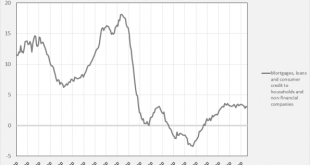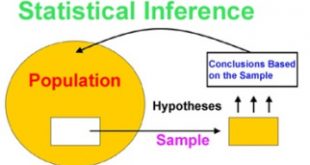from Katharine Farrell Georgescu-Roegen’s call, echoed by many of his contemporaries, and today paid lip service to by most, if not all economist, was to give serious analytical attention to representing the role of biological dynamics in economic process. It was expressed in large part through his detailed and repeated reference to the second law of thermodynamics, which served as the basis for his proposal to radically reconfigure the mathematical foundations of economic analysis:...
Read More »Should Olivier Blanchard still get credit?
On June 17 Olivier Blanchard, an influential economist, held a dinner speech at the ECB Sintra Forum. Weird. Nothing changed. No Hyman Minsky. No Claudio Borio. No Ulrich Bindseil and intertemporal instability of the asset side of bank balance sheets. No Flow of Funds. Nothing of the kind. His solution for the problems of the Eurozone: get relative prices right and, trust me, general neoclassical equilibrium will return. Just plain old 2007 macro-economics. The whole reason we’re stuck...
Read More »The weird absence of money and finance in economic theory
from Lars Syll Consider the problem of money. Money is of central importance to any modern capitalist market economy. Yet it is mainly sociologists, philosophers and dissenters that have maintained an interest in what money “is” with a view to continued critique and development … One might think this is because economics has already provided an agreed clear concept of money. But this is not the case. Contemporary economics defines money in terms of function (unit of account, store of...
Read More »MMT macro final exam (1/3)
from Asad Zaman During the last two semesters, I taught Macroeconomics based on a new approach which re-incorporates the history that Economists forgot (See Method or Madness?). The central idea of the course is that economic theories cannot be understood outside of their historical context. Conversely, economic history cannot be understood except by studying the economic theories (right or wrong) which were used by contemporaries to shape policy responses to historical events. The...
Read More »Economists helped force many people into poverty
from Ken Zimmerman Today and for the last 50 years economists have played a large part in increasing both the rate and impacts of poverty. Of the many factors involved in poverty, economists have increased the severity of three of these–unemployment, low wages, and poor health. Dominant economic theory today doesn’t even recognize the event unemployment, so its virtually impossible that these same economists can develop public policies to address the factors that lead to the rise of...
Read More »Plan for stopping the climate catastrophe – Is it magic realism or a serious possibility?
from Jorge Buzaglo Is it fake science? Is it magic realism? Or is it the launch of a serious, rational, open debate beyond establishment politicians, diplomats, and other amateurs? The following is (the internet translation of) an article published in the main Swedish morning newspaper by Mats Persson, economics professor and member of the Royal Academy of Sciences. According to him, it does not have to be painful and difficult to stop the climate catastrophe; on the contrary, it can be...
Read More »Chicago economics — a pseudo-scientific zombie
from Lars Syll A couple of years ago, in a lecture on the US recession, Robert Lucas gave an outline of what the New Classical school of macroeconomics today thinks on the latest downturns in the US economy and its future prospects. Lucas starts by showing that real US GDP has grown at an average yearly rate of 3 per cent since 1870, with one big dip during the Depression of the 1930s and a big – but smaller – dip in the recent recession. After stating his view that the US recession that...
Read More »Conventional economics takes the prize as the . . .
from Ikonoclast . . . my ontology is quite different from the ontology of conventional economics. The ontology of conventional economics is implicitly that of Cartesian dualism; meaning mechanical and deterministic in the realm of res extensa (extended thing(s), the physical) and spiritually animated in the realm of res cogitans (thought or thinking). A consequent product of thinking that ideas are pure and immaterial (in the Platonic sense) is the belief that ideas may refer to directly...
Read More »Under Trump, manufacturing job growth slows to a trickle
from Dean Baker Donald Trump put manufacturing jobs at the center of his economic platform in 2016. He endlessly harped on the loss of relatively good-paying manufacturing jobs. He blamed this job loss on “terrible” trade agreements and other countries “manipulating” the value of their currency to get an advantage in trade. He put China at the top of the list of bad actors, promising to declare them a currency manipulator on day one of his administration, which would directly lead to...
Read More »Why statistics does not give us causality
from Lars Syll If contributions made by statisticians to the understanding of causation are to be taken over with advantage in any specific field of inquiry, then what is crucial is that the right relationship should exist between statistical and subject-matter concerns … Where the ultimate aim of research is not prediction per se but rather causal explanation, an idea of causation that is expressed in terms of predictive power — as, for example, ‘Granger’ causation — is likely to be...
Read More » Real-World Economics Review
Real-World Economics Review




